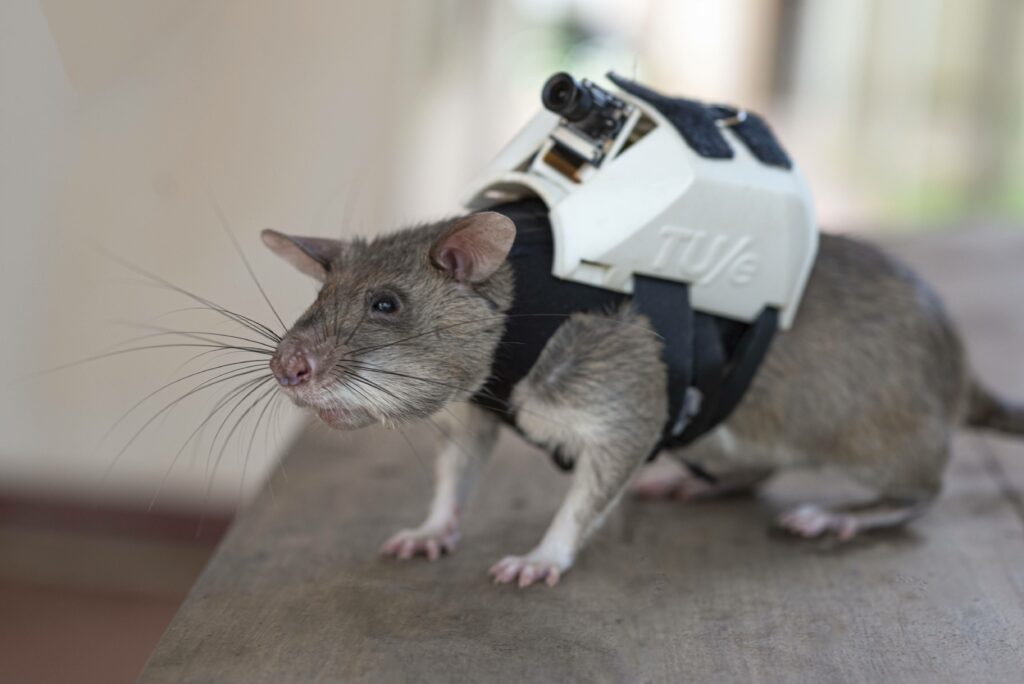SEARCH AND RESCUE “RESCUERATS”
As a research organization, APOPO remains committed to staying at the forefront of developing new humanitarian and environmental applications. We provide low-tech, cost-efficient solutions to pressing humanitarian challenges. APOPO’s innovative scent detection technology has huge potential to relieve human suffering and promote development when deployed in the fight against tuberculosis and landmines, along with other applications that are under development.
Search and Rescue Project
Natural disasters have devastating effects on human lives, with earthquakes and typhoons ranking among the most catastrophic. Sadly, 2022 and 2023 brought their share of natural disasters. Although Search and Rescue teams are expertly trained to quickly locate where survivors are trapped following these disasters, their efforts are impeded by the technologies available to support their efforts. These tools are limited in their ability to 1) penetrate the debris, 2) navigate within this complex environment, and 3) strategically search for survivors. Because of their compact size, agility, and exceptional sense of smell, our HeroRATs could uniquely overcome these challenges. To do so they need to be equipped with technology to map their location, remotely signal when they’ve found a survivor, and provide real-time communication with the victim.
Because of their size and agility, our rats could uniquely complement existing search & rescue efforts. This project is therefore aimed at training rats to locate humans while outfitted with a technology-enabled backpack to allow real-time wireless audio-visual communication from within each debris site.

Ongoing Efforts and Next Steps:
With the valuable lessons learned by participating in a search and rescue training exercise on location with our project partner, GEA (a major Turkish Search and Rescue organization) these promising preliminary results provide a firm foundation for continued training. APOPO is currently working with Eindhoven University of Technology and Private Partners for the next phase and development of the backpack and to have a new prototype ready in early 2024 for operational trials.

